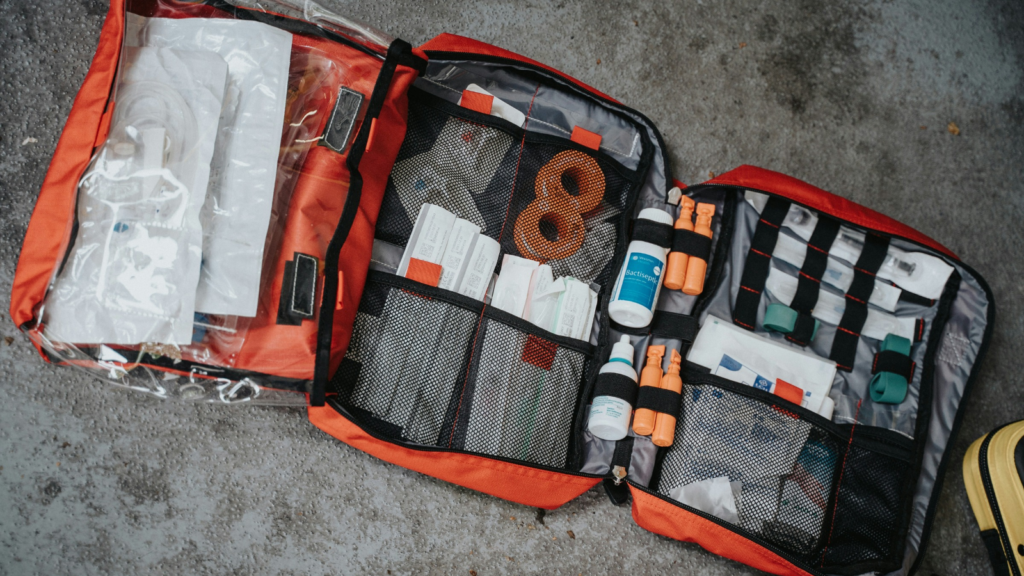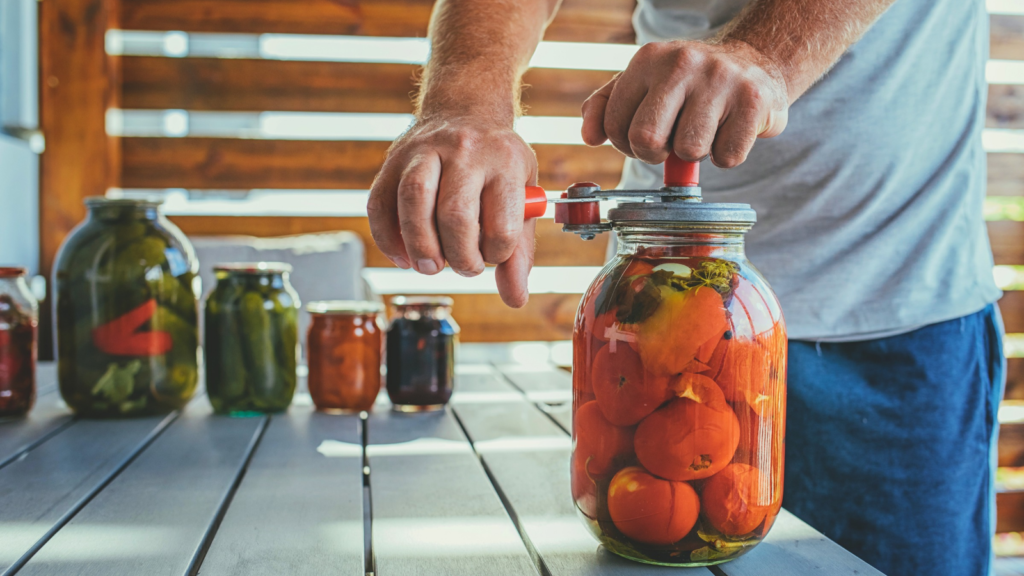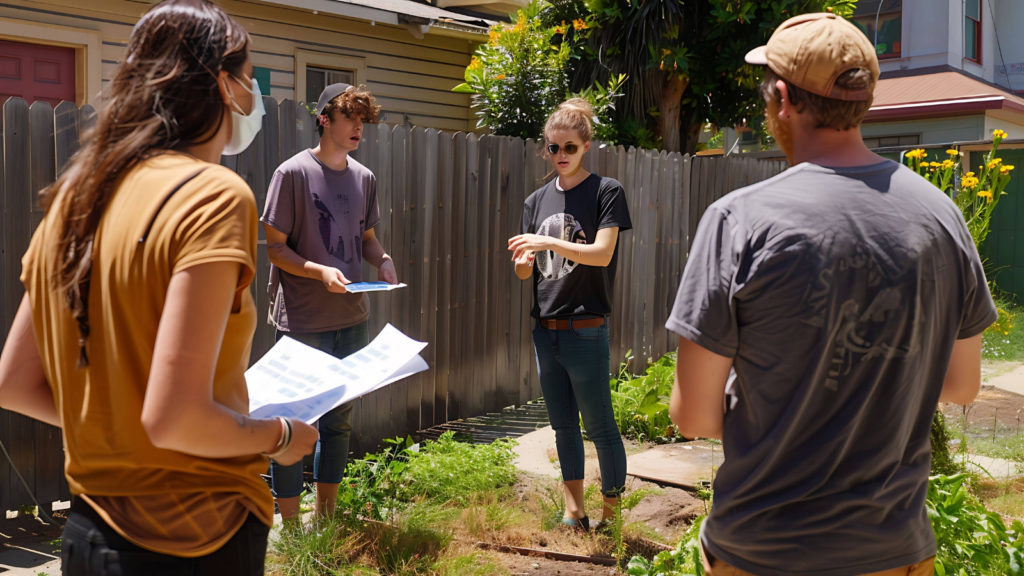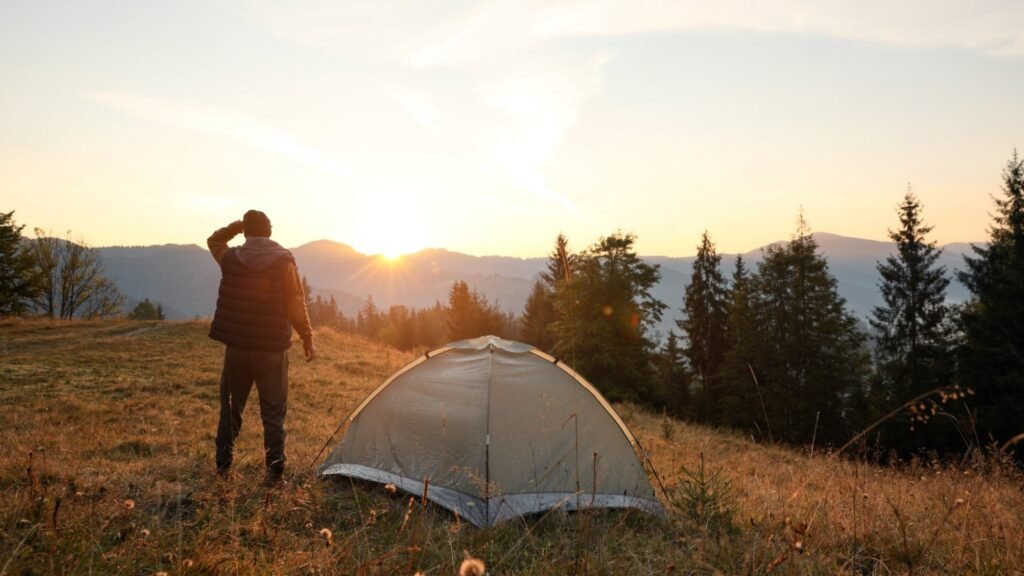In an increasingly unpredictable world, being prepared for the worst-case scenario is essential. A total societal collapse might seem like the stuff of fiction, but history has shown us that civilizations can crumble with frightening speed. Whether it’s a natural disaster, economic meltdown, or something entirely unforeseen, having a solid plan can mean the difference between thriving and barely surviving. These 24 strategies will help you weather the storm and come out the other side stronger, more self-reliant, and ready for anything.
Stockpile Non-Perishable Food

Building a robust food supply is crucial. Aim for a minimum of six months’ worth of non-perishable items for each person in your household. Focus on calorie-dense foods like rice, beans, and canned meats. Rotate your stock regularly, using the oldest items first and replacing them to keep your supply fresh. Don’t forget to include comfort foods and spices—they can be a huge morale booster in tough times.
Secure a Reliable Water Source

Water is life, especially in a crisis. Install a rainwater collection system and invest in high-quality water filters. Store at least one gallon per person per day for drinking and sanitation. Consider learning how to locate and purify natural water sources in your area. Remember to store water purification tablets or bleach for emergency disinfection.
Develop a Sustainable Garden

Growing your own food is a game-changer. Start with easy-to-grow, nutrient-dense crops like potatoes, beans, and squash. Learn about companion planting and crop rotation to maximize your yield. Don’t forget to stock up on heirloom seeds—they’re non-hybrid and can be saved for future planting. Consider vertical gardening techniques to maximize space and yield in small areas.
Master Basic Medical Skills

In a collapse, professional medical help might be unavailable. Take first aid courses and stock up on essential supplies. Learn about herbal remedies and how to treat common ailments without modern medicine. Consider specialized training in areas like suturing or setting bones. Create a comprehensive first aid manual tailored to your family’s specific needs and medical conditions.
Establish a Robust Security System

Protecting what you have becomes paramount in a crisis. Reinforce doors and windows, install security cameras and motion-sensor lights. Create a “safe room” within your home for emergencies. Remember, the best security is often being part of a tight-knit community where neighbors look out for each other. Develop a neighborhood watch system and establish clear communication protocols.
Build a Diverse Skill Set

The more you know, the better prepared you’ll be. Learn skills like basic carpentry, engine repair, and animal husbandry. Take classes in wilderness survival and self-defense. Every new skill you acquire is another tool in your survival toolkit. Prioritize learning at least one new skill every month and practice regularly to maintain proficiency.
Create a Communication Plan

In a collapse, staying connected is crucial. Invest in hand-crank radios and walkie-talkies. Learn Morse code and consider getting your ham radio license. Establish meeting points and protocols with your loved ones in case you’re separated during a crisis. Create a coded system for leaving messages that only your group understands.
Stockpile Essential Tools and Supplies

Beyond food and water, you’ll need tools to survive. Stock up on items like axes, saws, nails, and duct tape. Don’t forget about hygiene supplies—soap, toothpaste, and toilet paper will be worth their weight in gold. Think about what you use daily and ensure you have a long-term supply. Include multi-purpose items like paracord, which can be used for everything from shelter building to gear repair.
Develop a Reliable Power Source

Electricity might become a luxury in a collapse. Install solar panels and learn how to maintain them. Consider a backup generator and stock up on fuel. Learn how to create simple machines that don’t require electricity, like bicycle-powered water pumps or passive solar heaters. Experiment with small-scale wind turbines as an additional renewable energy source.
Master Food Preservation Techniques

Knowing how to preserve food long-term is crucial. Learn canning, smoking, and dehydrating techniques. Experiment with fermentation—it’s a great way to preserve vegetables and create probiotic-rich foods. Don’t forget about root cellaring for storing crops like potatoes and apples. Master the art of creating pemmican, a nutrient-dense, long-lasting food used by indigenous peoples for centuries.
Establish a Bartering System

Money might lose its value, but skills and supplies will always be in demand. Stock up on items that will be valuable for trade—things like alcohol, cigarettes, and chocolate. Develop skills that others will need, like sewing or tool repair. Create a catalog of your tradeable items and skills to facilitate easier bartering in your community.
Create a Bug-Out Bag

Sometimes, staying put isn’t an option. Prepare a bag with essentials for a quick evacuation. Include items like a multi-tool, fire starter, water purification tablets, and a first aid kit. Don’t forget important documents like identification and medical records—store copies in a waterproof container. Include a detailed map of your area with multiple bug-out routes marked.
Learn Wilderness Survival Skills

Knowing how to survive in the wild could save your life. Practice building shelters, starting fires without matches, and finding edible plants in your area. Learn how to navigate using the stars and natural landmarks. These skills will serve you well whether you’re bugging out or foraging for resources. Master the art of tracking animals, which can be useful for both hunting and avoiding dangerous wildlife.
Establish a Local Support Network

No one survives alone. Build relationships with like-minded individuals in your community. Form a mutual aid group to share resources and skills. Remember, a tight-knit community is often the best defense against the chaos of societal collapse. Organize regular skill-sharing workshops to strengthen your group’s overall preparedness.
Master Weapon Use and Maintenance

In a lawless situation, self-defense becomes crucial. Learn how to use and maintain firearms safely. Don’t neglect non-firearm weapons like bows or spears—they’re quiet and don’t require ammunition. Regular practice is key to maintaining proficiency. Learn how to craft improvised weapons from everyday materials as a last resort.
Develop Physical Fitness

Survival often requires physical stamina. Develop a fitness routine that focuses on functional strength and endurance. Include cardiovascular exercise, strength training, and flexibility work. Being in good shape will help you handle the physical demands of a post-collapse world. Incorporate skill-specific exercises, like loaded hikes with your bug-out bag, to prepare for real-world scenarios.
Learn Basic Engineering and Construction

Knowing how to build and fix things is invaluable. Learn about basic structural engineering and construction techniques. Practice building simple structures and repairing common household items. These skills will help you maintain your shelter and create tools in a long-term survival situation. Study ancient building techniques that don’t require modern materials, like cob construction or dry stone walling.
Master Animal Husbandry

Raising animals can provide a sustainable source of food. Start with easy-to-manage animals like chickens or rabbits. Learn about proper feeding, housing, and medical care for your livestock. Don’t forget to research breeding techniques to maintain your animal population long-term. Learn how to process animals humanely and use every part, from meat to hide to bones.
Develop Mental Resilience

Surviving a collapse is as much a mental challenge as a physical one. Practice stress-management techniques like meditation or deep breathing. Develop a strong sense of purpose and cultivate a positive mindset. Mental toughness can often make the difference between giving up and pushing through. Study historical accounts of survival in extreme situations to learn from others’ experiences and mentally prepare yourself.
Create a Seed Bank

Seeds are the key to long-term food security. Collect and properly store a variety of heirloom seeds. Learn proper seed-saving techniques for different plant types. Consider including medicinal herb seeds in your collection—they could be crucial for health care in a post-collapse world. Research and include seeds for plants that are particularly well-suited to your local climate and soil conditions.
Master Basic Chemistry

Understanding basic chemistry can be incredibly useful. Learn how to make soap, biodiesel, or alcohol for fuel. Understand the principles of water purification and how to create simple chemical reactions for practical purposes. This knowledge can help you create essential items when commercial products are no longer available. Learn how to extract useful chemicals from common plants, like making lye from hardwood ashes.
Develop Hunting and Trapping Skills

Wild game could become a crucial food source. Learn ethical hunting techniques and how to properly field dress and preserve meat. Master various trapping methods for small game. Don’t forget about fishing—it’s often an overlooked but valuable skill for procuring protein. Learn how to craft your own hunting and trapping tools, like snares or fishing nets, from natural materials.
Learn Natural Navigation

GPS and maps might not be reliable in a collapse. Learn how to navigate using the sun, stars, and natural landmarks. Understand how to read the landscape and find your way in various terrains. These skills could be life-saving if you need to travel or locate resources. Practice creating and using your own maps based on natural features and landmarks.
Cultivate Diplomatic Skills

In a crisis, the ability to negotiate and resolve conflicts peacefully is invaluable. Practice active listening and clear communication. Learn about conflict resolution techniques and how to de-escalate tense situations. Remember, sometimes the best way to survive is to turn potential enemies into allies. Study different cultural norms and communication styles to better navigate diverse groups in a post-collapse society.

